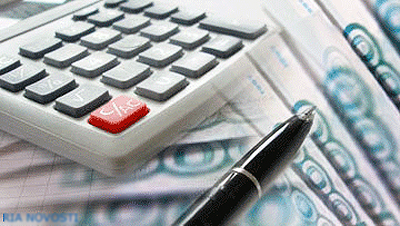Why Russia’s Market Is Rising After Sanctions Bill Approval

(Bloomberg – bloomberg.com – Ksenia Galouchko – July 27, 2017)
The U.S. House has approved a bill hardening sanctions against Russia, but European resistance to some of its toughest new measures means the impact on companies will be muted, according to Goldman Sachs Group Inc. and Deutsche Bank AG.
As it stands now, the most negative aspect of the bill for Russia, according to analysts, is that U.S. President Donald Trump can no longer ease or revoke the sanctions unilaterally, a possibility that boosted appetite for Russian assets after his election last year.
Julian Rimmer at Investec Bank Plc in London says that’s less of a concern after Russia’s economy “rebalanced and adjusted” to the penalties, which were originally imposed as punishment for Moscow’s role in the Ukraine crisis in 2014.
“If Russia were offered a choice of sanctions and $60 oil or no sanctions and $50 oil, chances are they would opt for the former,” he wrote in an emailed note.
The benchmark stock index climbed for a second day, adding 0.4 percent to 1,940.84 as of 12:56 p.m. in Moscow. The ruble was little changed after a 0.8 percent gain on Wednesday.
Still, the fact that the penalties are set to be enshrined in law means investors taking a longer-term view on Russia “need to think long and hard about the security of their assets,” according to Timothy Ash, a senior emerging-market sovereign strategist at Bluebay Asset Management in London.
Here’s how analysts are interpreting some of the key points in the bill, which next goes to the Senate for approval and from there to Trump’s desk for signing:
Pipeline Spat
The bipartisan bill empowers the president in coordination with the U.S. allies to sanction any entity that provides technology, services, investment or any support valued at $1 million or more to Russian export pipeline projects. Section 257 of the bill also stipulates the U.S. government will “continue to oppose” Gazprom PJSC’s $10 billion Nord Stream 2 natural-gas link with Germany, potentially endangering European energy companies Engie SA, Royal Dutch Shell Plc, OMV AG, Uniper SE and BASF SE, according to Alex Brooks, an analyst at Canaccord Genuity Ltd.
Still, after a threat of retaliation this week from the European Union, the limits are unlikely to be applied, Goldman Sachs economist Clemens Grafe said.
“The text only provides for sanctions imposed in consultation with U.S. allies,” he said. “There is little appetite in large parts of Europe to contemplate such an extension.”
Lending Limits
The bill limits lending to Russian-sanctioned banks, such as Sberbank PJSC and VTB Group, the nation’s biggest lenders, to 14 days from 30 days. Deutsche Bank analyst Elina Ribakova says that’s largely a symbolic step with “little practical impact on banks’ business.”
Similarly, the bill tightens earlier sanctions by reducing the duration of loans to sanctioned companies in the energy sector to 60 days from 90 days, a compromise compared with the 30 days originally proposed by the Senate.
Metals, Miners
Under the new bill the Treasury will be able to impose sanctions on state-owned mining, metals and railways companies. While that could pose a threat to Alrosa PJSC, the world’s largest diamond miner, it won’t affect Russia’s biggest metals producers, MMC Norilsk Nickel PJSC, Novolipetsk Steel PJSC and Severstal PJSC, because they aren’t state-run, according to BCS Global Markets and Kapital Asset Management.
Any penalties will hit the global diamond market and Alrosa hopes “common sense will prevail,” CEO Sergey Ivanov said Wednesday. Sanctions won’t affect operations because the diamond miner doesn’t borrow overseas or use U.S. or European technologies, he said.
Shipping
The bill removes Russia’s shipping industry from the list of sectors that was targeted in the earlier, Senate-approved version. That’s good news for Sovcomflot OJSC, whose initial public offering was delayed by the government in June.
Softer Threshold
The latest bill softens the wording of a clause that originally prohibited energy companies from joining international projects where Russian companies have any holding. Amid fears they would buy a symbolic stake to keep U.S. competitors away, the rule was changed to apply only to ventures where sanctioned Russian entities have at least a 33 percent interest.
This allows developments like the Shah Deniz project in Azerbaijan, where BP Plc is the main operator and Russia’s Lukoil PJSC has a 10 percent stake. The change also appears to give a green light to the Sakhalin 1 oil fields in Russia’s far east, where Exxon Neftegas Limited, a subsidiary of Exxon Mobil Corp., is partners with Rosneft PJSC.
With assistance by Stephen Bierman, Dina Khrennikova, Yuliya Fedorinova, and Elena Mazneva
©2017 Bloomberg L.P. All Rights Reserved. Article also appeared at bloomberg.com/news/articles/2017-07-26/why-russia-s-market-is-rising-after-sanctions-bill-wins-approval
